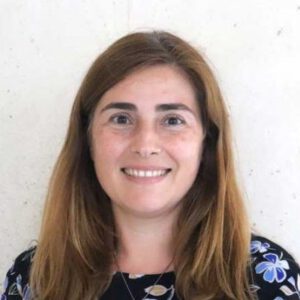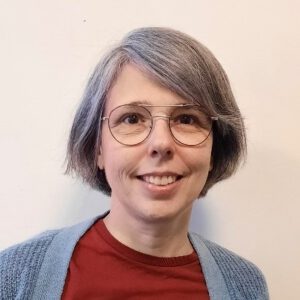The Ataxia Advisory Committee for Therapeutics (Ataxia ACT) aims to optimize the planning and execution of preclinical and clinical drug development programs for (all forms of) ataxias. Ataxia ACT provides confidential, unbiased, multi-stakeholder and multidisciplinary expert advice to optimize therapy development, by either a) steering studies along a realistic and well-informed plan to clinical trial/later phase clinical activity or b) encouraging a change of direction or approach, to avoid failure further down the line. It is based on the blueprint of the successful Treat-NMD TACT.
Ataxia ACT can address:
- Trial design
- Drug formulation
- Bioavailability and toxicology
- Regulatory considerations
- Recommendations including go-no-go milestones
The Ataxia ACT meets twice a year: once in the autumn and once in the spring. The applicants are asked to pay a contribution towards the meeting costs.
The Ataxia ACT process is independent of any funding stream, but applicants can use its reports to support funding applications. An Ataxia ACT review is NOT an endorsement by Ataxia ACT or Ataxia Global Initiative that a drug has any particular status in terms of regulatory or funding potential.
Terms of Reference
Pre-Application Form
Non-Confidential Summaries of Past Applications
Upcoming Ataxia Advisory Committee Meetings
13 and 15 April 2026, online
Pre-application deadline: 15 January 2026
Full application deadline: 15 February 2026
One place is currently available
9-10 November 2026, Atlanta, USA - prior to the ICAR 2026
Pre-application deadline: 1 July 2026
Full application deadline: 1 August 2026
Four places are currently available
Interested in coming to Ataxia ACT?
Get in touch with us at ataxiaglobaloffice [at] med.uni-tuebingen.de to talk about how we can help improve your therapeutic development program.
Ataxia ACT Core Committee
Guided by two chairs, the Ataxia ACT Core Committee makes decisions on the strategic direction of the ACT and reviews and provides feedback on all potential applications. The Core Committee covers a wide range of expertise in a drug development process. Core members attend every ACT meeting and review each application unless a conflict of interest has been identified.

Adelaide Fernandes Borralho
Adelaide Fernandes is an Associate Professor. She received her degree in Pharmaceutical Sciences in 2002 and her PhD in Pharmacy (Biochemistry) in 2006, from the University of Lisbon.
Adelaide's research focuses on inflammation-associated disorders. Main projects address inflammatory cross-talk between Central Nervous System resident cells, immune cells and peripheral inflammation in neurodegenerative disorders, as Multiple Sclerosis, Alzheimer’s Disease and ARSACS.
She authored more than 85 papers, mentored several Master and PhD students and obtained national and international funding. She serves on the Executive Committee of the Research Institute for Medicines (iMed.ULisboa).

Maria Judit Molnar
Judit Molnar is a Professor of Neurology, Psychiatry, Clinical Genetics, and Clinical Pharmacology, Doctor of the Hungarian Academy of Sciences, director of Semmelweis University’s Institute of Genomic Medicine and Rare Disorders.
She is the member of the Committee of Orphan Medicinal Products of the EMA, among others president of the Hungarian Medical College of Clinical Genetics, past president of the Hungarian Human Genetic Society, elected Co- Chair of the Neurogenetic Scientific Panel of the EAN, secretary of the Hungarian Society of Personalized Medicine.
She was the vice-rector for Scientific Affairs at Semmelweis University (Budapest, Hungary) between 2012 and 2015. Dr. Molnar is recognized as a leading expert on the management of rare neurological disorders. The Institute leaded by her is the part of the ERN-RND) and ERN-NMD. Dr. Molnar is the member of the management board of the ERN-RND, she is the president of the Hungarian Node of the BBMRI ERIC, Europe largest biobank network.

Susan Perlman
Core Committee Chair
Susan Perlman has had clinical experience with the diagnosis and management of Friedreich’s ataxia and Spinocerebellar ataxia patients and families for 35 years and has participated in multiple clinical trials.
She is an active member of the Collaborative Clinical Research Network for Friedreich’s ataxia and the Clinical Research Consortium for Spinocerebellar Ataxia (CRC-SCA) and Director of our Ataxia Center of Excellence.
Susan Perlman collaborates with a) colleagues at UCLA; and b) at other sites nationally and internationally, on studies of neurogenetic disorders, including Huntington’s disease, the Spinocerebellar Ataxias, Friedreich’s ataxia, and Ataxia telangiectasia.

Thorsten Schmidt
Thorsten Schmidt has been working for almost 25 years in the field of inherited, neurodegenerative disorders and in particular on ataxias.
He is leading since 2006 the SCA3 research group and since 2015 the Research laboratory at the Institute of Medical Genetics and Applied Genomics at the University Hospital Tübingen.
In order to dissect these mechanisms, he generated one of the first antibodies against ataxin-3 as well as several different transgenic mouse models of this disease. The group studies modifying factors of the disease and develop treatment strategies for ataxias using molecular biological, protein biochemical and cell biological methods. Thorsten is a lead of the AGI working group 5 Model systems & preclinical trials which main goal is the standardization of preclinical research that is essential to establish trial-readiness for ataxias.

Barbara Tate
Barbara Tate, PhD, has been the Chief Scientific Officer of the Friedreich Ataxia Research Alliance since spring of 2020. Previously, she was the Chief of Strategy and a venture partner at the Dementia Discovery Fund (DDF), SV Life Sciences. She has worked in both large and small pharmaceutical companies, where she has held executive positions.
She was a founder and the first CEO of Tiaki Therapeutics, a DDF portfolio company. She was also a founder of Ataxion (later Cadent) and a Founder and the Vice President and Head of Biology at Rodin Therapeutics, both Atlas Venture companies.
Prior to Rodin, Barbara was Vice President for Research at Satori Pharmaceuticals, a biotech company developing a treatment for Alzheimer's disease.
At Pfizer, Barbara managed the neurodegenerative disease area group in Groton, CT. Prior to working in industry, Barbara was an academic researcher at Brown Medical School and Harvard Medical School.

Sophie Tezenas du Montcel
Since 2022: PI - ARAMIS Team, Paris Brain Institute, INRIA, INSERM
Since 2017: Associate professor - Pitié-Salpêtrière Hospital (Medical information department) and Sorbonne Université, Paris
2004-2017: Associate professor - Pitié-Salpêtrière Hospital (Biostatistics department) and UPMC/Sorbonne Université, Paris
2003: PhD Genetic Epidemiology - University Paris XI, Paris, France
1998-2004: Assistant Professor - Pitié-Salpêtrière Hospital and UPMC, Paris
1998: Medical degree (MD) - Université Aix - Marseille II, France
Public health and biostatistics; statistical analysis of large cohorts and natural history studies of neurological diseases since >20 years; methodology and analysis of several clinical trials, lead statistician of multiple spinocerebellar ataxias cohorts (EUROSCA, RISCA, READISCA). Expertise in data warehouse (data provider and data analysis).

Bart van de Warrenburg
Core Committee Chair
Bart van de Warrenburg is professor of Neurology and research group leader at the Radboudumc, Nijmegen, Ther Netherlands. He was trained in neurology at the same center and was a movement disorders fellow at Queen Square, London, UK.
He is founder and head of the Radboudumc expert center for rare and genetic movement disorders (appointed by the Minister of Health and also formal partner in the European Reference Network for Rare Neurological Disorders). He is a recognized clinical expert in rare movement disorders, with a focus on ataxias.
His team performs translational research, and the first of three interconnected scientific pillars is detailed profiling of patient cohorts, serving identification of new disease and progression markers. Second, research into disease mechanisms, providing leads to design and test new therapies. The third pillar is the actual development and clinical evaluation of symptomatic and mechanism-based interventions.
Currently, he is the chair of the MDS Ataxia study group and active in many national and international ataxia consortia and networks.

Willeke van Roon-Mom
One of the disease areas Willeke van Roon-Mom has been working on for more than 20 years are Spinocerebellar Ataxias caused by CAG repeat expansions in the coding regions of genes. This research has focused on studying disease mechanisms and developing splice modulating RNA targeting therapies. She further expanded her expertise in the use of induced pluripotent stem cell (iPSC) based models and animal models for neurodegenerative diseases.
Willeke is a co-director of the Dutch Center for RNA Therapies (DCRT), which focus is on developing RNA targeting treatments for patients with unique mutations (RNAtherapy.nl).
Willeke van Roon-Mom is part of the European 1 Mutation 1 Medicine (1M1M) network and the worldwide N of one collaborative (N1C). She is on the Medical Advisory Board of the Dutch Ataxia Patient Association and Scientific Advisory Board member of the Dutch Brain Foundation. Her group works in close collaboration with SCA patients and their families.
Ataxia ACT Extended Committee
In addition to the Core Committee who attend all Ataxia ACT reviews, we have a pool of global experts who are referred to as our extended committee. For each Ataxia ACT application, a bespoke panel is put together with invited reviewers selected from the extended committee who are best placed to answer specific questions and provide tailored multidisciplinary advice.
